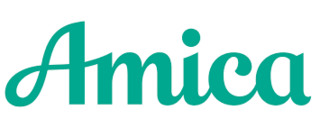This Home Insurance Coverage Is More Expensive — but Worth Every Penny

Home insurance gives you a crucial layer of financial protection. Ironically, it’s also a product you hope you never have to use. If you do have to file a claim for damaged or stolen property, though, it helps to know the ins and outs of how insurance companies pay out claims.
One of the key details is whether the home insurance policy uses the actual cash value or the replacement cost value when replacing damaged or stolen property. You get to choose whether claims allow you to receive the actual cash value or the replacement cost of any damaged property.
Knowing the differences between the two types of coverage, along with their pros and cons, can help you decide which option is right for you. And to understand why that choice should probably be the replacement cost option, despite its slightly higher cost.
How actual cash value coverage works
If your home insurance policy has actual cash value coverage and you file a claim, the company will pay the current market value of the damaged or stolen property, any depreciation factored into the payout. This means they take the current age and condition of the structure or item in question. As a result, the actual cash value might be significantly less than the amount of money required to replace the item new.
For instance, say your roof is damaged. If a new roof is valued at $10,000 but the insurer's claims adjuster determines that yours has incurred $3,000 worth of depreciation, you would only receive $7,000 towards the cost of replacing your roof, and would be responsible for paying the balance out of pocket.
You are unlikely to receive the full value of an item due to depreciation. That said, if the item is newer, and undamaged, you will get closer to the full replacement value.
How replacement cost coverage works
Replacement cost coverage is more robust than actual cash value coverage because it covers the full cost to rebuild destroyed or damaged property back to its original state or to replace it outright. The insurer will pay for new materials that are of a like kind and quality. For instance, if you have a brick home that sustains damage, your insurer will cover the cost of rebuilding the house with similar bricks.
Replacement cost coverage provides a higher value if you have to file a claim, but it comes at a cost. Home insurance policies with replacement cost coverage have higher premiums than insurance policies that pay claims based on actual cash value.
The pros and cons of actual cash value
As you’re deciding which home insurance policy is right for you, these are some of the advantages and disadvantages of actual cash value coverage to consider.
Pros
- Lower premiums: You will have more money in your budget to cover other expenses, including replacing items you lose or are damaged.
- Faster claim process: If you need a quicker resolution when you file a claim, insurance policies with actual cash value coverage tend to be settled more quickly than claims on policies with replacement cost coverage.
- Optimal for those who self-insure: If your financial situation permits, you can effectively self-insure by keeping enough cash in savings to cover the difference between the insurance payout and the cost to replace or rebuild in the event of an incident.
Cons
- Out-of-pocket costs: You have to cover the gap between the cost of replacing your home and what you receive from the actual cash value payout. Keep in mind that those payouts come after you’ve paid your deductible, which could be $1,000 or more.
- Rehabilitating historic homes may be a challenge: If rebuilding or repairing your home requires fixtures, finishes or craftsmanship that are no longer common, repair or rebuilding costs could be significantly more expensive than the cash value reimbursement.
- The insurer defines depreciation: The insurance company determines how much your property has depreciated and pays you accordingly. While it is possible to appeal a depreciated value set by the insurer, the onus will be on you to prove that your payout should be higher.
The pros and cons of replacement cost coverage
Replacement cost coverage is the alternative to actual cash value coverage available to homeowners. These are the pluses and minuses to consider.
Pros
- Full replacement funding: The insurer will cover the entire cost of replacing damaged or stolen property. You don’t have to worry about coming up with the difference between depreciated payouts and the cost of replacement.
- Inflation protection: The insurer is required to pay for similar materials when rebuilding your property or repairing any damage. This stipulation provides a measure of protection from inflation if material costs increase over time.
- Coverage for living expenses: This policy offers more coverage than an actual cash value home insurance policy, including living expenses if a major disaster like a flood or fire renders your home uninhabitable. Your policy will cover additional living expenses such as hotel lodging or rent, meals and transportation costs.
Cons
- Higher premiums: Policies with replacement cost coverage have higher premiums than actual cash value policies.
- Longer claims process: You and the insurer may have disputes about materials costs and what quality of material is sufficient for replacing damaged or destroyed property. The time it takes to agree can create a delay in settling a claim.
- Policies still have limits: Insurance policies, even those with replacement cost coverage, still have coverage limits. You may still have to pay some out-of-pocket costs, particularly if your home was underinsured prior to filing a claim.
Which home insurance policy should you choose?
The best home insurance policy depends on your financial situation and risk tolerance. If you’re worried about being able to afford home insurance premiums, actual cash value coverage is an option that provides at least some coverage in the event that your home is damaged, destroyed or burglarized.
However, most people prefer the peace of mind that comes with knowing insurance will make you whole. After all, while you can budget for higher premiums in your monthly expenses, it’s much harder to predict how much you might have to pay out-of-pocket after a disaster if your insurance only covers actual cash value costs.
Replacement cost coverage imposes a fairly modest increase in premiums. While the added costs vary widely by insurer, the likely percentage hike will probably be in the single digits. Even on a $2,000 insurance premium, that would keep the added expense for replacement coverage to no more than $200 a year.
If you have a mortgage, the choice between the two reimbursement options on your insurance may not even be yours. Lenders generally require that you carry enough coverage to rebuild if disaster strikes, and some even require that insurance be of the replacement cost variety.
Even after you pay off your mortgage, it’s smart to carry homeowners insurance, and of the replacement cost kind. After all, your home is probably your most valuable asset, so you’ll want to keep it protected and restore it fully if the worst were to happen.




